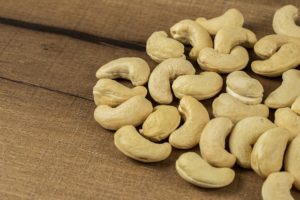The Elemental Diet: A Potential Treatment for Severe Gastrointestinal Problems

Gastrointestinal problems are common and increasing in the general population. While numerous theories exist, the exact reason for the rise in cases is not completely understood. Finding effective treatments has become a priority as rates continue to increase.
Inflammatory Bowel Disease
Inflammatory bowel disease is an inflammatory condition that may become severe due to damage along the digestive tract. Symptoms typically include diarrhea and abdominal pain. Rates of inflammatory bowel disease, including Crohn’s disease and ulcerative colitis have been increasing. While newer treatments have been introduced that may reduce symptoms, for Crohn’s disease, mortality rates are still quite high, approximately 50% higher than average (Burisch 2013).
Irritable Bowel Syndrome
Irritable bowel syndrome (IBS)—a less severe condition that includes symptoms of diarrhea or constipation and abdominal pain—also appears to be increasing. Estimates suggest around 10% of people in the United States have IBS (Corsetti 2017). The condition is often challenging to treat with standard therapeutics. This often leaves individuals experiencing symptoms that limit their activities over the course of their lifetime.
Small Intestinal Bacterial Overgrowth
One of the suspected causes that appears to have an underlying relationship with cases of inflammatory bowel disease and IBS is small intestinal bacterial overgrowth (SIBO). SIBO is a somewhat controversial condition. Some researchers even question the extent of its existence, while others think it’s an unrecognized cause of numerous health conditions.
In healthy individuals, the small intestine has minimal bacteria. However, the small intestine is dark, warm, moist and frequently full of food. It’s not surprising that in some cases, things can go wrong and bacteria overgrow. If the bacteria cause enough damage or produce enough toxins, a person can experience symptoms. When the amount of bacteria crosses a specific threshold, it is considered SIBO.
Surprisingly, numerous disease conditions have correlations with SIBO. Celiac disease, connective tissue disease (an autoimmune condition), Crohn’s disease, diabetes, hypothyroidism, ulcerative colitis, chronic fatigue syndrome, chronic pancreatitis, kidney failure, fibromyalgia, IBS, immune deficiencies, liver failure, obesity, dry eyes, restless leg syndrome, rosacea, muscular dystrophy, and Parkinson’s disease all have associations with the condition (Grace 2013).
Unfortunately, like inflammatory bowel disease and IBS, SIBO is also a challenging condition to treat. In addition, even after successful treatment, relapse is common. Due to the challenges, alternative treatments to clear the excess bacteria from the small intestine have been explored. In severe cases, an “elemental diet” appears to hold significant promise.
The Elemental Diet

While not for the faint of heart, the elemental diet has a place for treating gastrointestinal problems. The diet focuses on only eating the fundamental dietary constituents in their most basic form. You consume oil for fat, amino acids for protein, sugar for carbohydrates and include all of the needed vitamins and minerals. Since the “food” is basically predigested, it’s all completely absorbed within the first portion of the small intestine. This gives the digestive tract a break, allowing it to clear the offending organisms throughout its length. In most cases, an elemental diet is consumed for two or three weeks without any additional food.
The biggest challenge of the diet is palatability. People may also experience hunger and other side effects like headaches or gastrointestinal disturbances. It usually doesn’t taste good, although some commercial products claim to have solved flavor issues. However, most products on the market contain maltodextrin, an ingredient that has been shown to increase risks for gastrointestinal inflammation (Nickerson 2015). Surprisingly, even with formulas containing the ingredient, success rates remain relatively high.
The Elemental Diet As a Treatment
The elemental diet has shown success in treating inflammatory bowel disease, small intestinal bacterial overgrowth, eosinophilic esophagitis and possibly rheumatoid arthritis.
SIBO and Crohn’s Disease
When used for treating small intestinal bacterial overgrowth, the elemental diet appears quite promising. Success rates around 80-85% have been reported with a 66% reduction in gastrointestinal symptoms like bloating and diarrhea (Pimentel 2004). For children with inflammatory bowel disease (Crohn’s disease), an elemental diet has been shown to be as effective as steroids for improving symptoms and maintaining remission (Schwermer 2020).
Eosinophilic Esophagitis
The elemental diet seems to hold promise for other gastrointestinal conditions. Eosinophilic esophagitis has only recently been recognized as a medical condition. Symptoms include difficulty swallowing, food getting stuck in the throat, chest pain and regurgitation of food. It is caused by the infiltration of a large amount of white blood cells into the tissues of the throat. Of interest, the elemental diet has shown marked efficacy in treating the condition. One study described “striking improvements” in symptoms and the underlying disease process through its application (Markowitz 2003).
Rheumatoid Arthritis
Rheumatoid arthritis is an autoimmune condition that presents with significant joint pain and swelling. Some of the latest research strongly suggests that rheumatoid arthritis has roots in gastrointestinal health (Maslinska 2021). Early studies found some minimal benefits with an elemental diet, although numerous patients couldn’t follow the rigorous diet (Kavanaghi 1995). A study in 2007 compared an elemental diet for two weeks to a course of steroids and found the treatments to be of similar efficacy (Podas 2007). Further research can help clarify the diet’s utility for treating rheumatoid arthritis.
Conclusion
The elemental diet is a fairly extreme dietary measure that involves consuming food in a predigested state to simplify digestion. While difficult and unpleasant to follow, the diet has shown efficacy in treating a number of challenging conditions with a similar efficacy to steroids. While the elemental diet should only be attempted with medical assistance, it has a place in the treatment of gastrointestinal disorders. Further evidence is needed to explore whether or not it is effective in other conditions correlated with small intestinal bacterial overgrowth.



